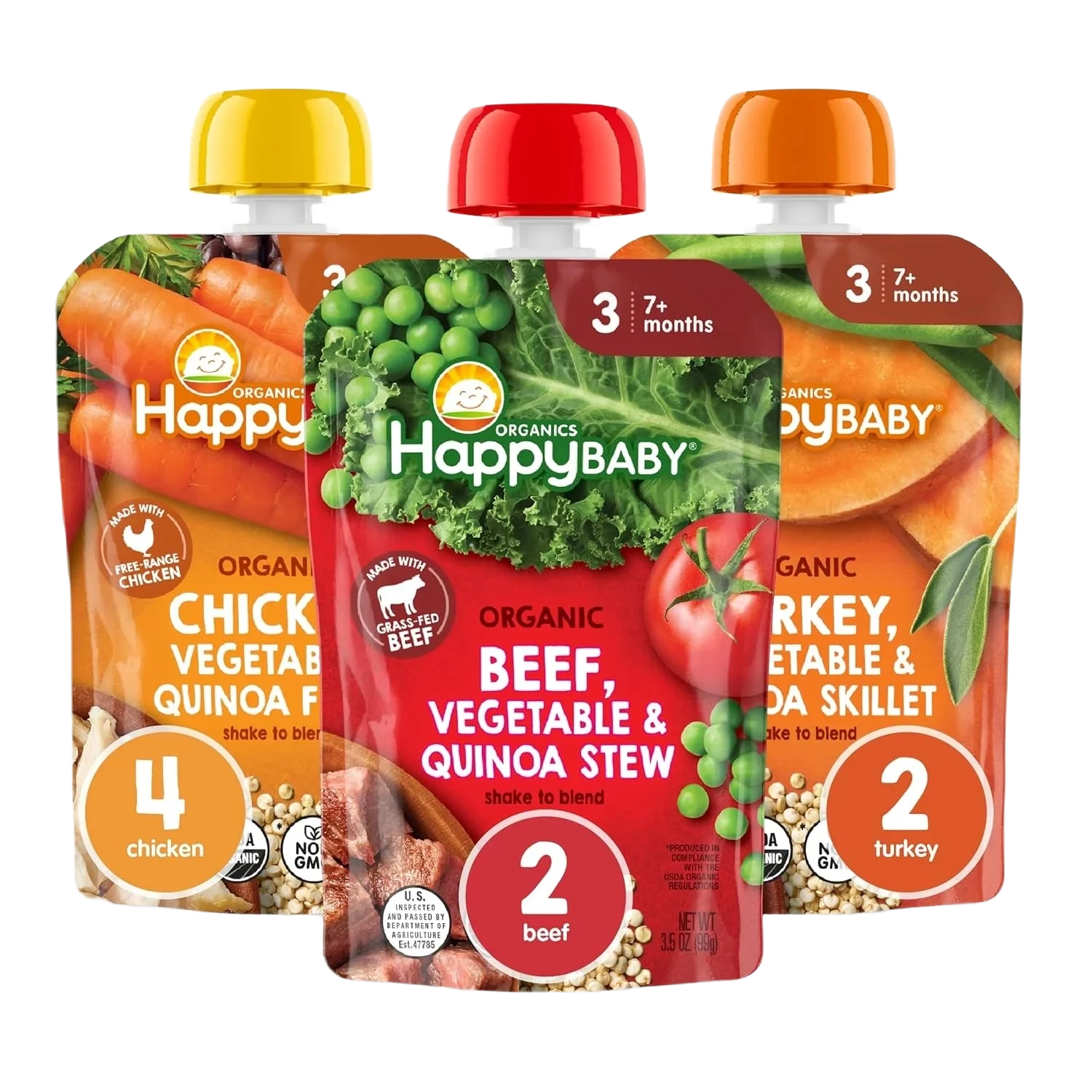For newborn tummies
0–6 month old babies should generally have only breast milk or infant formula. Please talk to your pediatrician before giving anything else.
Take care of you and your baby ❤️
ORGANIC BEEF, VEGETABLE & QUINOA STEW
baby food • For 0-6 month old infants • Consumable 🍝
Product Images
Product Photo

Tap to enlarge
Ingredient List

Tap to enlarge
Is this safe for 0-6 month old newborns to eat ORGANIC BEEF, VEGETABLE & QUINOA STEW?
Check for Different Age (6 available)
Ingredients Analysis (20 found)




















Common Questions About ORGANIC BEEF, VEGETABLE & QUINOA STEW
Is this newborn-safe? ORGANIC BEEF, VEGETABLE & QUINOA STEW
ORGANIC BEEF, VEGETABLE & QUINOA STEW is not recommended for 0-6 month old babies due to potentially harmful ingredients.
What ingredients should I watch out for?
We analyzed 20 ingredients in ORGANIC BEEF, VEGETABLE & QUINOA STEW. 11 avoid, 7 concerning, 1 caution. Check the detailed analysis above for specific concerns.
When can newborns start eating baby food?
The appropriate age depends on the specific ingredients. This analysis is for 0-6 month old babies. Use the age selector above to check other ages.
⚠️ Important Disclaimers
Product Recognition: Product names are identified programatically and may be incorrect. Always verify product identity yourself.
Safety Analysis: Evaluations are for research only - consult pediatricians for medical decisions. Do not rely solely on this analysis.
No Guarantees: Results may be incomplete or inaccurate. Do not rely solely on this analysis.